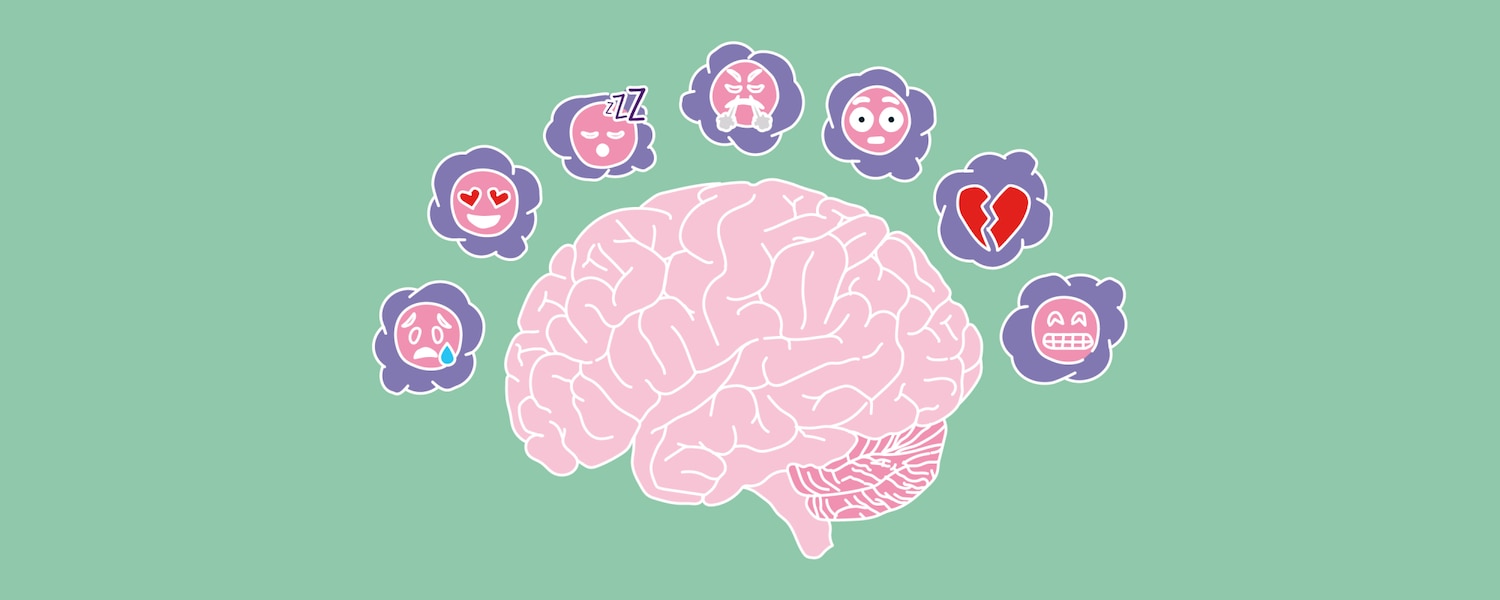Teenage brain: dealing with emotional changes during puberty


Exercise improves your mood and helps you feel more energetic and positive, even if it’s just a walk.

Finding things you enjoy will make this whole phase so much easier. Try walks with friends, listening to music, or even cuddling a pet.

Having the right amount of sleep is important. Not only will you feel refreshed, but getting enough sleep is related to better brain health. [6]
Keep a diary
You may feel confused, lonely, angry, happy, and sad when you’re going through puberty. Practising naming your emotions by scribbling thoughts in your diary can help you notice how they change and what triggers them. You could also keep notes on your phone, so you don’t forget to write them down later. Sometimes just recognising certain feelings early on makes it easier to ride them out.
Talk to people you trust
It can feel good to share what you’re going through with someone close to you – whether it’s with a friend, sibling, parent, or even a teacher. Sometimes, simply letting your emotions and anxieties out can lighten the load. And even if you can’t work out an exact solution yet, a big hug and squeeze can help you feel better and less alone.
Talk to people you trust
Just because your brain is in overdrive doesn’t mean that you should be too! Having some “me time” can help you figure out your emotions when you are going through puberty. If you're feeling down, why not stay in your room wearing comfy clothes and listening to your favourite album? Or perhaps painting or reading a book? It’s always a good idea to do what you love, relax, and take some time for yourself, especially if there’s a lot going on with school and friends or family.
Growing up is not always easy, so try not to beat yourself up when your moods shift. It’s only human. And particularly during puberty, it’s very common. Just because you’ve felt blue for a few days, doesn’t mean you’ll always be sad. Or just because you’ve been shouting a lot recently, doesn’t mean you’ll always be angry. Remember it’s your hormones and brain that are being a bit difficult.
Treat yourself (and your friends, who are likely going through the same) with kindness during this time. And if your feelings get out of hand and you hurt someone, the best you can do is sincerely apologize and try to do better next time... we all make mistakes.
To get you through puberty, you can also reach out to a school counsellor for support or even ask an adult you trust to get you an appointment with a therapist who can help you find other ways to cope with your emotions. It’s okay to ask for help, you don’t have to figure this out by yourself!
Understanding exactly what’s going on in your mind and body can help you feel better about the changes you’re experiencing. So why not learn more about the hormonal phases of your menstrual cycle or what’s up with body image and objectification?
[References]
[1] Mills, K. L., Goddings, A. L., Herting, M. M., Meuwese, R., Blakemore, S. J., Crone, E. A., et al. 2016. Structural brain development between childhood and adulthood: convergence across four longitudinal samples. Neuroimage 141:273–81. doi: 10.1016/j.neuroimage.2016.07.044.
[2] https://www.urmc.rochester.edu/encyclopedia/content.aspx
[3] Experts, K.H.M. (ed.) Everything you wanted to know about puberty (for teens) - nemours kidshealth, KidsHealth. The Nemours Foundation. Available at: https://kidshealth.org/en/teens/puberty.html (Accessed: December 12, 2022)
[4] The adolescent brain: Beyond raging hormones (2011) Harvard Health. Available at: https://www.health.harvard.edu/mind-and-mood/the-adolescent-brain-beyond-raging-hormones (Accessed: December 12, 2022)
[5] Mayo Clinic Q and a: Rapid mood changes normal for teens - Mayo Clinic News Network (2022) Mayo Clinic. Mayo Foundation for Medical Education and Research.
[6] Lock, Sarah & Chura, Lindsay & Barracca, Nicholas. (2017). The Brain-Sleep Connection: GCBH Recommendations on Sleep and Brain Health. 10.26419/252Fpia.00014.001.pdf.




